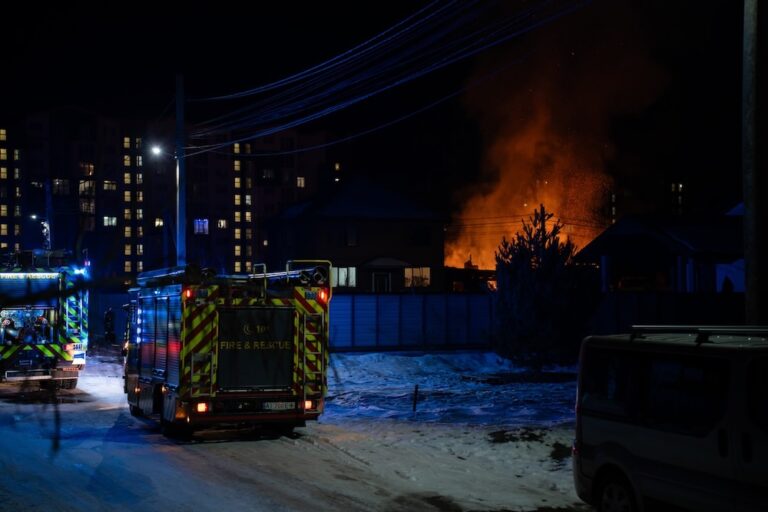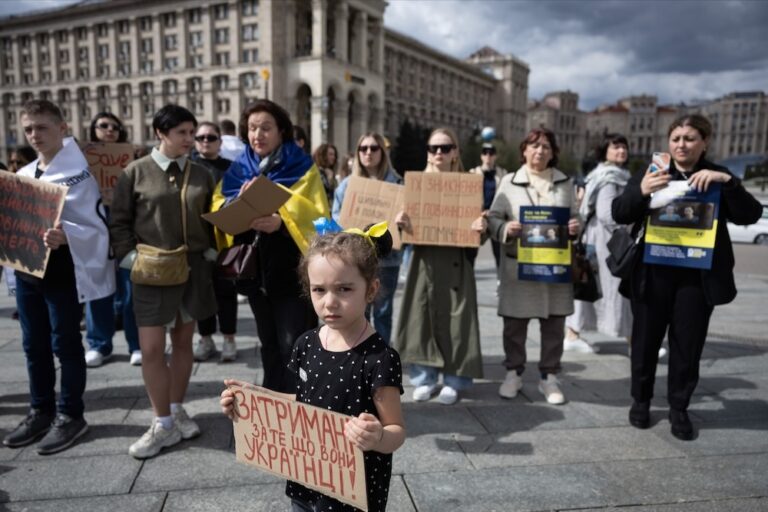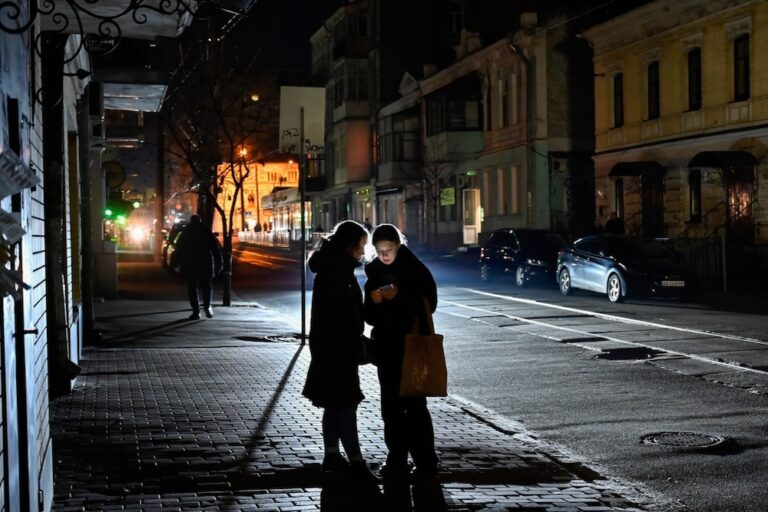(CJES/IFEX) – A series of searches was conducted at the apartments of staff members and others associated with the newspaper “Permsky Obozrevatel” on the morning of 27 September 2006. Among those who had their apartments searched were the newspaper’s driver and systems administrator, Editor Tatyana Sokolova told CJES. The law enforcement officials who conducted the […]
(CJES/IFEX) – A series of searches was conducted at the apartments of staff members and others associated with the newspaper “Permsky Obozrevatel” on the morning of 27 September 2006.
Among those who had their apartments searched were the newspaper’s driver and systems administrator, Editor Tatyana Sokolova told CJES. The law enforcement officials who conducted the searches confiscated computers, discs, family photos and video tapes. At the same time, searches were conducted at the apartments of the parents of Ilya Grinberg, founder of “Permsky Obozrevatel”, and Alexei Kharin, executive director of the newspaper’s parent company, Alfa.
“Everyone was told that the searches were being conducted on the initiative of the prosecutor’s office and the protocol stated that the law enforcement agencies were searching for ‘documents, valuables, and electronic devices.’ It is a very strange thing. It is also strange that law enforcement officials did not search Grinberg’s apartment, where he lives and where the prosecutor’s office normally sends a summons, but searched the apartment of his parents, where he is only formally registered to live. We see this as pressure on our founder and the paper,” said Sokolova.
Sokolova said the newspaper has experienced pressure from the administration of the Perm territory for several months. Its editorial board believes this persecution is connected to the elections for the territory’s Legislative Assembly, which are scheduled to take place in December 2006. “The independent publication poses a threat to the authorities as it publishes critical articles,” she said.
The arrest and continued detention of the newspaper’s photojournalist, Vladimir Korolyov, on suspicion of disclosing a state secret is also seen by “Permsky Obozrevatel” and Alfa as a form of pressure on the media.
Sokolova believes that the editorial offices’ phones and those of the newspaper’s staff are being tapped. “For example, we did not tell anyone that well-known lawyer Karen Nersisyan was coming to Perm from Moscow to attend an appeal hearing in the Korolyov case at the Perm regional court. All conversations were conducted over the phone. But as soon as he approached the regional court building, he was met by local police and officials from the Federal Security Service and the prosecutor’s office,” said Sokolova.
Sokolova also said law enforcement agencies likely used phone tapping to learn about the editorial board’s actions on September 22. “On that day, our staff members gathered in front of the building where our photojournalist is held. When we arrived, there was a police unit there,” said Sokolova.
Sokolova said the newspaper’s second photojournalist, Konstantin Zubenin, who photographed the rally, was detained by police, who confiscated his camera and erased all the photos from its memory card. Police later returned Zubenin’s camera and released him.
Local television did not cover the rally, even though journalists were present. “The editor-in-chief of Uralinform TV told us honestly that he had been warned not to cover the rally. The only channel that was not afraid to air a report on us was Avto TV,” said Sokolova.


